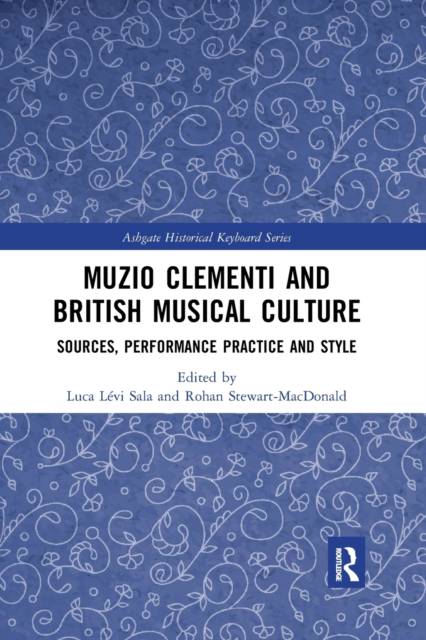
- Retrait gratuit dans votre magasin Club
- 7.000.000 titres dans notre catalogue
- Payer en toute sécurité
- Toujours un magasin près de chez vous
- Retrait gratuit dans votre magasin Club
- 7.000.0000 titres dans notre catalogue
- Payer en toute sécurité
- Toujours un magasin près de chez vous
Muzio Clementi and British Musical Culture
Sources, Performance Practice and Style
86,95 €
+ 173 points
Description
Muzio Clementi (1752-1832) achieved notable success in a diversity of activities that centred mainly on the piano. This book explores Clementi's multivalent contribution to piano performance, pedagogy, composition and manufacture in relation to British musical life and its international dimensions. An overriding purpose is to interrogate when, h
Spécifications
Parties prenantes
- Editeur:
Contenu
- Nombre de pages :
- 230
- Langue:
- Anglais
- Collection :
Caractéristiques
- EAN:
- 9780367589783
- Date de parution :
- 14-08-20
- Format:
- Livre broché
- Format numérique:
- Trade paperback (VS)
- Dimensions :
- 155 mm x 231 mm
- Poids :
- 362 g

Les avis
Nous publions uniquement les avis qui respectent les conditions requises. Consultez nos conditions pour les avis.





